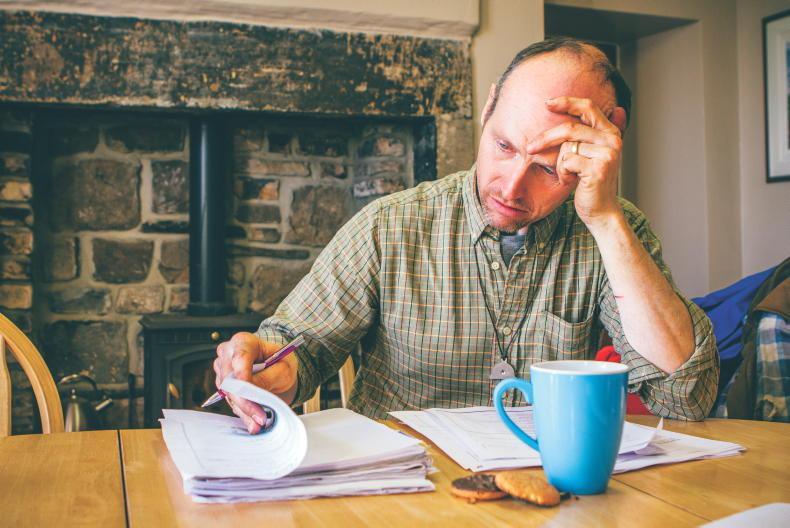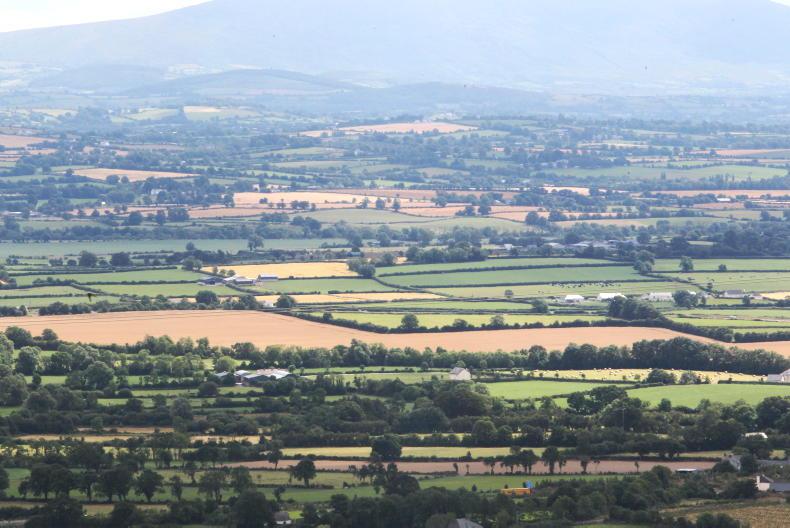Anyone who establishes an adequate PRSI contribution record, up to pension age (currently 66), is entitled to a contributory state pension. This is not means tested, so it is available to anyone who qualifies regardless of any other income, such as a private pension or part-time work.
The current contributory state pension is €253.30 per week, taxable. If this is the only source of income, it is unlikely any tax will be payable. If you retire at age 65 (and cease working), you may also qualify for a benefit payment for that year until the State pension commences at age 66.
To qualify for the State Contributory Pension – self-employed
Self-employed persons between the ages of 16 years and 66 years with earnings of €5,000 or more per annum are liable for Class S PRSI. The rate of PRSI is 4% subject to no upper limit, but to a lower limit of €500. If you cease farming, or if your income falls below €5000 limit, and you are under age 66, you may apply to become a Voluntary Contributor paying a special rate of €500 per annum.
To qualify for the state contributory pension, you need 520 paid contributions (10 years paid). No more than 260 of the 520 contributions may be voluntary contributions. There is also a normal average rule (you need an average of 48 contributions to get the maximum pension), and an alternative average rule, (you need an average 48 Class A, E, F, G, H, or S contributions paid), that can apply.
Under the National Pensions Framework, there is a proposal to introduce a total contributions approach (TCA), to replace the current averaging system. Legislation is required before these come into effect. It will ensure the amount of pension paid to you will be directly proportionate to the number of social insurance contributions /credits made over your working life.
To qualify for the State Contributory Pension – PRSI worker
To qualify, you need to be aged 66 or over, and commenced paying PRSI before age 56, and have paid at least 520 PRSI contributions. You need a yearly average of at least 10 qualifying contributions to get a minimum pension, and a yearly average of at least 48 qualifying contributions to get a maximum pension.
When
to apply
You should apply for the State contributory pension three months before your 66th birthday.
Dear Money Mentor,
I am married to a beef and sheep farmer with two grown up children. I have always worked outside the home, although I did take a career break from my job, for six years when my children were young. My husband has his own personal pension. I am 49 years old and I would like to retire at 60. I am wondering if my career break has had an effect on my pension fund. I have only ever contributed the minimum amount of 5% to my pension while working. I am also unsure if my employer continued to make pension contributions when I was on career break. Any advice would be welcome.
Regards,
Jane
Hi Jane,
You should receive an annual statement of your pension benefits from your pension provider, which should state what age you can expect to receive your pension. This statement should outline the current accumulated employee pension benefits, and the forecasted benefits up to retirement age. If this calculation is based on a retirement age of 65, (and as you wish to retire at age 60), you could start to make a bigger contribution to your pension fund now, so there is no shortfall on retirement. Under current pension rules, people aged 40 to 50 years are entitled to contribute up to a maximum of 25% of their gross earnings, and avail of tax relief at the marginal rate of tax.
For example, if your salary is €60,000, and you currently contribute €250 per month (5%), you could contribute up to €1250 per month (25%), and avail of full tax relief at your marginal rate. The net cost of this to you would be €750 per month, (assuming your marginal rate of tax is 40%). These increased contributions are called AVCs (additional voluntary contributions). Obviously, your disposable income will need to be sufficient to support such an increase in your pension contribution.
If you wish to proceed with this, you will need to contact your pension provider, complete some paper work and forward to your payroll department. Your increased pension contributions will then be deducted from your salary, allowing you to claim your full tax relief at source.
Career breaks do impact future earnings of a pension fund. Pensions are a very tax efficient product, based on saving an adequate amount for future income requirements, and the contributions/funds wisely invested to ensure adequate growth. Having a pension fund where no contributions were made by yourself, or by your employer, for a period of time will affect the overall fund. This can be considerable, so it is best to check this out with your pension provider.
You could also avail of some professional advice from an independent pension provider. You should know where your money is being invested, and how the fund is performing overall. Anyone with a pension should review their pension plan regularly, to ensure the expected retirement income is on target, and will be sufficient for their retirement needs.
You will also be entitled to the State contributory pension at age 66 (this may change), as long as you have sufficient PRSI contributions paid, through your working life. Home making and caring duties can be used as qualifying years. You can request a contribution statement from MyWelfare.ie online, which will confirm your actual paid PRSI contributions to date.
Kind regards,
Margaret
Read more
Money Mentor: An Post to deliver everyday community banking solutions
Money Mentor: maternity benefits for farmers
Anyone who establishes an adequate PRSI contribution record, up to pension age (currently 66), is entitled to a contributory state pension. This is not means tested, so it is available to anyone who qualifies regardless of any other income, such as a private pension or part-time work.
The current contributory state pension is €253.30 per week, taxable. If this is the only source of income, it is unlikely any tax will be payable. If you retire at age 65 (and cease working), you may also qualify for a benefit payment for that year until the State pension commences at age 66.
To qualify for the State Contributory Pension – self-employed
Self-employed persons between the ages of 16 years and 66 years with earnings of €5,000 or more per annum are liable for Class S PRSI. The rate of PRSI is 4% subject to no upper limit, but to a lower limit of €500. If you cease farming, or if your income falls below €5000 limit, and you are under age 66, you may apply to become a Voluntary Contributor paying a special rate of €500 per annum.
To qualify for the state contributory pension, you need 520 paid contributions (10 years paid). No more than 260 of the 520 contributions may be voluntary contributions. There is also a normal average rule (you need an average of 48 contributions to get the maximum pension), and an alternative average rule, (you need an average 48 Class A, E, F, G, H, or S contributions paid), that can apply.
Under the National Pensions Framework, there is a proposal to introduce a total contributions approach (TCA), to replace the current averaging system. Legislation is required before these come into effect. It will ensure the amount of pension paid to you will be directly proportionate to the number of social insurance contributions /credits made over your working life.
To qualify for the State Contributory Pension – PRSI worker
To qualify, you need to be aged 66 or over, and commenced paying PRSI before age 56, and have paid at least 520 PRSI contributions. You need a yearly average of at least 10 qualifying contributions to get a minimum pension, and a yearly average of at least 48 qualifying contributions to get a maximum pension.
When
to apply
You should apply for the State contributory pension three months before your 66th birthday.
Dear Money Mentor,
I am married to a beef and sheep farmer with two grown up children. I have always worked outside the home, although I did take a career break from my job, for six years when my children were young. My husband has his own personal pension. I am 49 years old and I would like to retire at 60. I am wondering if my career break has had an effect on my pension fund. I have only ever contributed the minimum amount of 5% to my pension while working. I am also unsure if my employer continued to make pension contributions when I was on career break. Any advice would be welcome.
Regards,
Jane
Hi Jane,
You should receive an annual statement of your pension benefits from your pension provider, which should state what age you can expect to receive your pension. This statement should outline the current accumulated employee pension benefits, and the forecasted benefits up to retirement age. If this calculation is based on a retirement age of 65, (and as you wish to retire at age 60), you could start to make a bigger contribution to your pension fund now, so there is no shortfall on retirement. Under current pension rules, people aged 40 to 50 years are entitled to contribute up to a maximum of 25% of their gross earnings, and avail of tax relief at the marginal rate of tax.
For example, if your salary is €60,000, and you currently contribute €250 per month (5%), you could contribute up to €1250 per month (25%), and avail of full tax relief at your marginal rate. The net cost of this to you would be €750 per month, (assuming your marginal rate of tax is 40%). These increased contributions are called AVCs (additional voluntary contributions). Obviously, your disposable income will need to be sufficient to support such an increase in your pension contribution.
If you wish to proceed with this, you will need to contact your pension provider, complete some paper work and forward to your payroll department. Your increased pension contributions will then be deducted from your salary, allowing you to claim your full tax relief at source.
Career breaks do impact future earnings of a pension fund. Pensions are a very tax efficient product, based on saving an adequate amount for future income requirements, and the contributions/funds wisely invested to ensure adequate growth. Having a pension fund where no contributions were made by yourself, or by your employer, for a period of time will affect the overall fund. This can be considerable, so it is best to check this out with your pension provider.
You could also avail of some professional advice from an independent pension provider. You should know where your money is being invested, and how the fund is performing overall. Anyone with a pension should review their pension plan regularly, to ensure the expected retirement income is on target, and will be sufficient for their retirement needs.
You will also be entitled to the State contributory pension at age 66 (this may change), as long as you have sufficient PRSI contributions paid, through your working life. Home making and caring duties can be used as qualifying years. You can request a contribution statement from MyWelfare.ie online, which will confirm your actual paid PRSI contributions to date.
Kind regards,
Margaret
Read more
Money Mentor: An Post to deliver everyday community banking solutions
Money Mentor: maternity benefits for farmers









SHARING OPTIONS